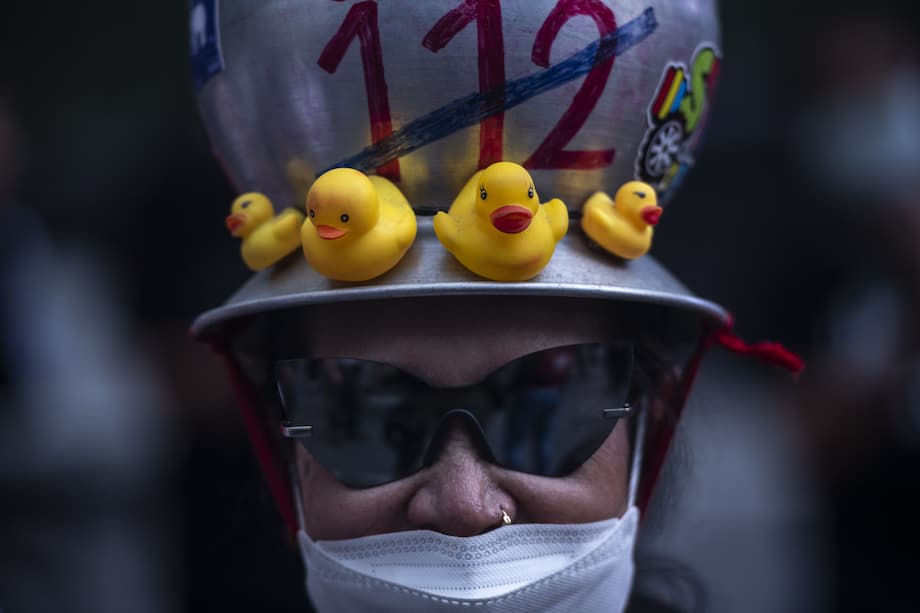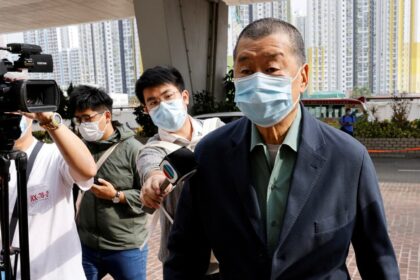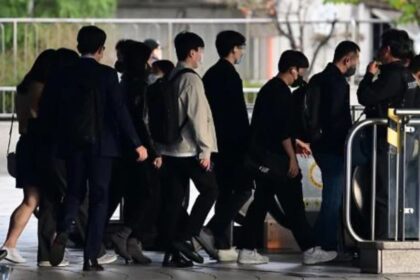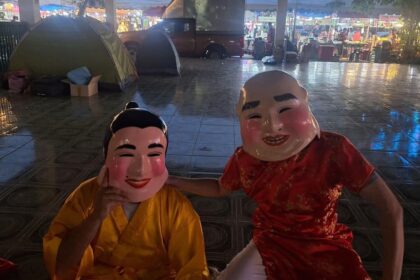Thailand’s Lese Majeste Law: A Tool of Power and Controversy
Thailand’s lese majeste law, officially known as Section 112 of the Criminal Code, is among the world’s harshest statutes criminalizing criticism of the monarchy. Under this law, anyone found guilty of defaming, insulting, or threatening the king, queen, heir apparent, or regent faces three to fifteen years in prison per offense. In practice, sentences can accumulate to decades behind bars, and the law’s broad interpretation means even indirect or implied criticism can be prosecuted. The law’s impact extends far beyond the royal family, shaping the country’s political landscape and stifling dissent.
Since 2020, Thailand has witnessed a surge in lese majeste prosecutions, with at least 281 people charged, including activists, ordinary citizens, children, and even foreign nationals. The law’s reach is so extensive that complaints can be filed by anyone, and police are required to investigate every allegation. Conviction rates are high—around 80%—and prosecutors indict in nearly every case. The chilling effect on free speech is profound, with many avoiding any discussion of the monarchy, even in private.
Origins and Purpose of Lese Majeste
Lese majeste laws exist in several monarchies, but Thailand’s enforcement is uniquely severe. The law was introduced in its modern form in 1957, but its roots trace back to the country’s transition from absolute to constitutional monarchy in 1932. Supporters argue that the law is essential for protecting the monarchy, which is seen as a unifying force and a pillar of national identity. Proponents claim it maintains public order and shields the royal institution from threats or disrespect.
However, critics—both domestic and international—argue that the law is used as a political weapon. Human rights organizations, the United Nations, and free speech advocates have repeatedly called for its repeal or reform, citing its role in silencing government critics and suppressing public debate. The law’s vague wording and broad application have led to accusations that it serves to protect not just the monarchy, but also the interests of the conservative elite and military establishment.
Thaksin Shinawatra: From Exile to the Defendant’s Dock
Few figures embody the intersection of Thailand’s lese majeste law and political power struggles as vividly as Thaksin Shinawatra. A billionaire telecoms tycoon, Thaksin served as prime minister from 2001 until his ouster in a 2006 military coup. His populist policies won him enduring support among rural voters but made him a target for the country’s conservative, pro-royalist elite. After years in self-imposed exile to avoid corruption charges he claimed were politically motivated, Thaksin returned to Thailand in 2023, setting off a new wave of political drama.
Upon his return, Thaksin was immediately taken into custody to serve an eight-year sentence for abuse of power and corruption. However, he spent his incarceration in a hospital on medical grounds and was released on parole after six months, following a royal pardon that reduced his sentence to one year. His return coincided with the formation of a coalition government led by his Pheu Thai Party, in alliance with former military and conservative rivals—a move widely seen as a pragmatic compromise to keep the progressive Move Forward Party out of power.
Now, Thaksin faces a lese majeste charge stemming from a 2015 interview he gave to South Korean media. Prosecutors allege that his comments insulted the monarchy, specifically by implicating the king’s advisory council, the privy council, in the 2014 military coup that ousted his sister, Yingluck Shinawatra, from the premiership. Although the privy council is not technically covered by Section 112, the law’s broad interpretation has allowed the case to proceed.
The Legal Proceedings and Political Stakes
Thaksin’s lese majeste trial is being held behind closed doors in Bangkok’s Criminal Court. If convicted, he faces up to 15 years in prison. The court has imposed strict bail conditions, including confiscation of his passport and a prohibition on leaving the country without permission. The verdict is expected on August 22, 2025, and the outcome could have far-reaching consequences for both Thaksin and Thailand’s political future.
Thaksin’s legal troubles are not limited to the lese majeste case. He also faces scrutiny over the legitimacy of his hospital stay during his previous incarceration, with allegations that he faked illness to avoid prison. Meanwhile, his daughter, Paetongtarn Shinawatra, who became prime minister in 2024, has been suspended from office over a leaked phone call with Cambodia’s former leader, Hun Sen, in which she criticized a Thai army commander. The Constitutional Court is reviewing her case, and a negative verdict could force her resignation and trigger a new round of political instability.
These overlapping legal battles have brought Thailand to a political crossroads. The Shinawatra family’s influence, once seemingly unassailable, now hangs in the balance. The conservative establishment, which has long viewed the Shinawatras as a threat to the traditional social order, appears determined to use the courts to limit their power.
How Lese Majeste Shapes Thai Politics and Society
The lese majeste law is more than a legal statute; it is a central instrument in Thailand’s ongoing struggle between democratic reform and conservative retrenchment. The law’s enforcement has intensified during periods of political unrest, particularly since King Maha Vajiralongkorn ascended the throne in 2016. The king’s reign has seen a dramatic increase in prosecutions, especially following the youth-led pro-democracy protests of 2020.
These protests shattered longstanding taboos by openly calling for reforms to the monarchy—a demand that was previously unthinkable in Thai society. Activists like Arnon Nampa, a human rights lawyer, became symbols of the movement. Arnon has been sentenced to a combined 29 years in prison for his speeches and faces the possibility of more than 60 years behind bars. His case, like many others, highlights the personal and familial toll of lese majeste prosecutions. Families of those charged often face emotional, financial, and social hardship, with some forced to flee the country to avoid prosecution.
The Human Cost: Activists, Academics, and Ordinary Citizens
The law’s impact is not limited to high-profile politicians. Ordinary citizens, students, and even children have been prosecuted. American academic Paul Chambers was arrested and briefly jailed before being deported, losing his job and visa in the process. Activists have died in custody or gone on hunger strike to protest their detention. Organizations like Freedom Bridge have emerged to support political prisoners and their families, providing food, medicine, and financial assistance.
The law’s chilling effect on free speech is pervasive. Many Thais avoid discussing the monarchy altogether, even in private conversations. The risk of prosecution extends to foreigners and tourists, who are warned to be cautious about what they say and write while in Thailand.
Judicial Power and Political Maneuvering
Thailand’s judiciary plays a pivotal role in the country’s political dynamics. Courts have repeatedly intervened to dissolve political parties, remove prime ministers, and block reformist agendas. The dissolution of the Move Forward Party, which won the most seats in the 2023 general election on a platform of institutional reform—including amending the lese majeste law—was a major blow to the progressive movement. The Constitutional Court ruled that the party’s campaign to reform Section 112 was tantamount to attempting to overthrow the monarchy, effectively banning any legal effort to change the law.
This judicial activism has led to accusations that the courts serve as bulwarks of the conservative establishment, using legal mechanisms to maintain the status quo and suppress opposition. The result is a political system where elected governments are frequently undermined by unelected institutions, and where the threat of legal action hangs over anyone who challenges the monarchy or the military’s role in politics.
The Shinawatra Family: Dynasty Under Siege
The Shinawatra family has dominated Thai politics for over two decades, producing four prime ministers and building a powerful political machine. Thaksin’s populist policies, such as universal healthcare and rural development programs, won him enduring loyalty among the country’s poor and working-class voters. However, his critics accuse him of corruption, nepotism, and undermining the monarchy.
After Thaksin’s ouster in 2006, his sister Yingluck Shinawatra became prime minister in 2011, only to be removed by a military coup in 2014. The family’s political fortunes have waxed and waned, but their influence has remained a constant source of tension with the conservative elite.
The current legal challenges facing Thaksin and Paetongtarn represent the most serious threat to the dynasty’s future. If Thaksin is convicted and jailed, and if Paetongtarn is permanently removed from office, the Shinawatra era may be coming to an end. Some analysts suggest that internal divisions and relentless external pressure are eroding the family’s political base, potentially opening the door for new leadership.
Political Crisis and the Road Ahead
Thailand is once again on the brink of political crisis. The simultaneous legal proceedings against Thaksin and Paetongtarn have destabilized the ruling coalition, which now holds only a slim majority in parliament. The departure of key coalition partners and the threat of mass protests by activists have heightened tensions. The outcome of these cases could reshape the country’s political landscape, determining whether the conservative establishment can maintain its grip on power or whether new forces will emerge.
Meanwhile, the broader struggle over the lese majeste law continues. Despite international pressure and domestic calls for reform, the law remains firmly in place. An Amnesty Bill currently under consideration in parliament offers hope to some political prisoners, but lese majeste offenses are unlikely to be included. The law’s defenders argue that it is necessary for national stability, while its critics see it as an obstacle to democracy and human rights.
International Attention and Calls for Reform
The international community has increasingly focused on Thailand’s lese majeste law, especially following high-profile cases and the death of activists in custody. United Nations experts have urged Thailand to repeal or amend the law, arguing that it violates international human rights standards. Human rights organizations continue to document abuses and advocate for those prosecuted under Section 112.
Despite these efforts, meaningful reform remains elusive. The dissolution of the Move Forward Party and the judiciary’s hardline stance have made it nearly impossible for any political force to legally challenge the law. The result is a society where open debate about the monarchy is effectively forbidden, and where the threat of prosecution hangs over anyone who dares to speak out.
In Summary
- Thailand’s lese majeste law is one of the strictest in the world, punishing criticism of the monarchy with lengthy prison sentences.
- The law has been used extensively against activists, politicians, academics, and ordinary citizens, with over 280 people charged since 2020.
- Former Prime Minister Thaksin Shinawatra faces a high-profile lese majeste trial, with a verdict expected in August 2025. His daughter, Paetongtarn, is also suspended from the premiership amid legal challenges.
- The law is widely criticized by human rights groups and the United Nations as a tool for silencing dissent and maintaining conservative control.
- Efforts to reform the law have been blocked by the judiciary, which has dissolved reformist parties and prevented debate on the issue.
- The outcome of the Shinawatra cases could reshape Thailand’s political future, but the lese majeste law remains a powerful barrier to democratic reform.












